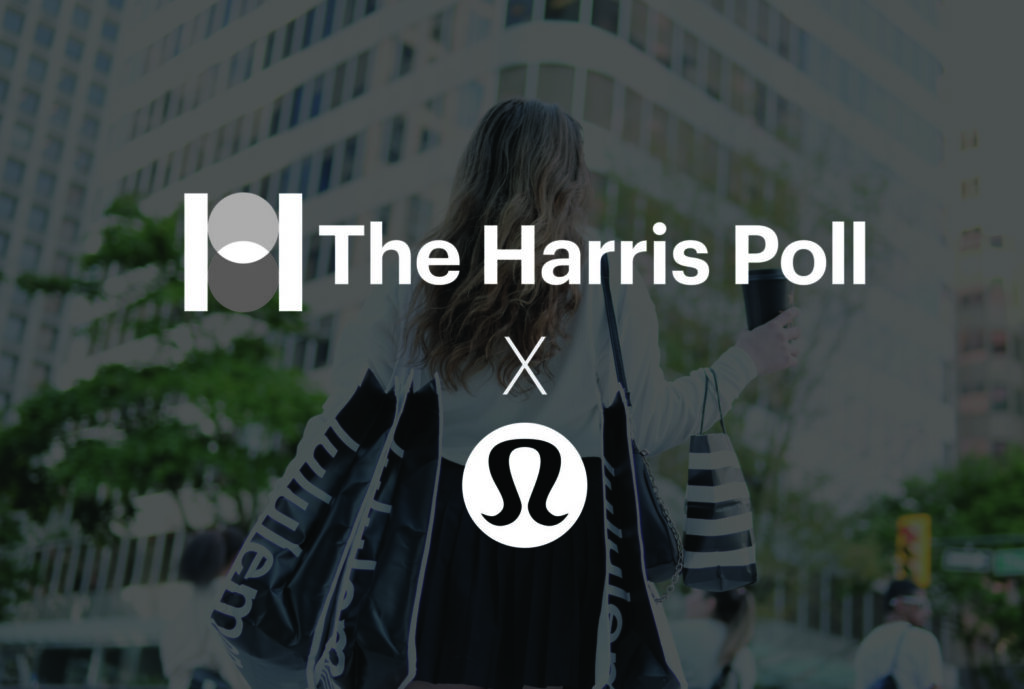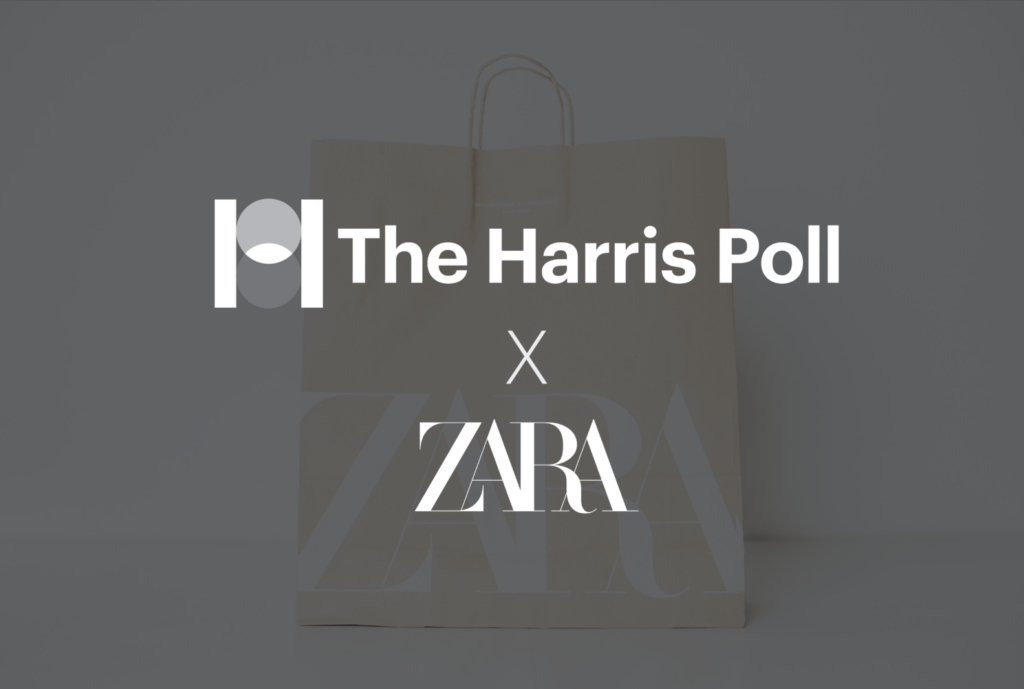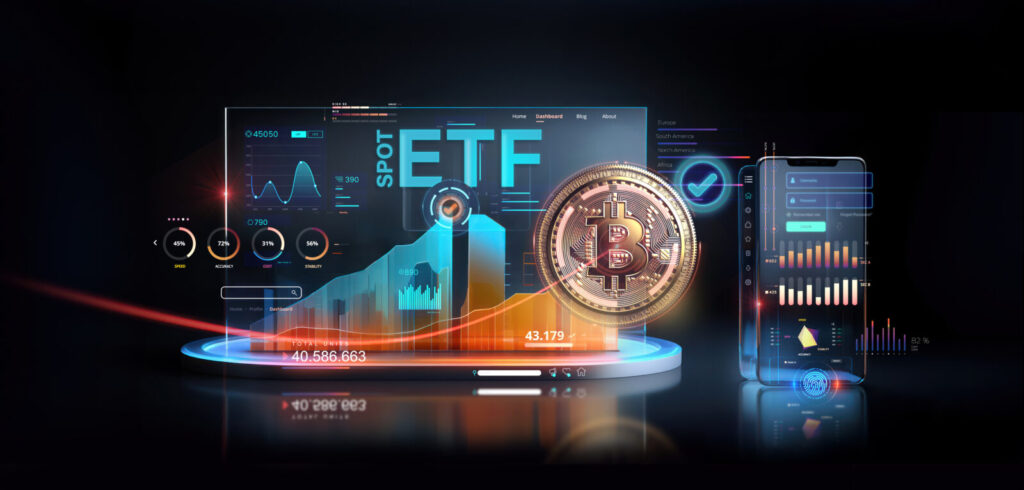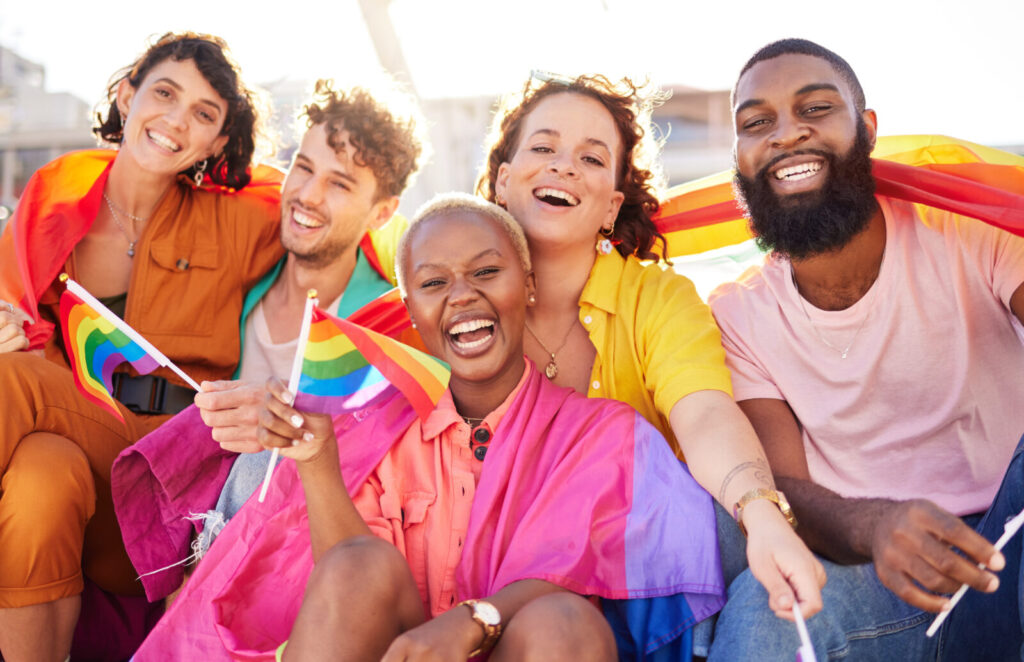- Entering early twenties
- Starting off their careers
- Social media natives
- Grew up in long-tail digital culture
- Pioneered ‘Cancel Culture’
- Driven by reality/realism
- Inclusivity is non-negotiable
- Mental health is top priority
- Fiscally responsible
- Aligning micro-armies around purpose
- Political polarization + PTSD
- Climate disaccord
- Thrift shops
Quick Facts About Gen Z
Born after 1996, the oldest are now 26
Gen Z’s make up nearly a quarter of the U.S. population
Projected spending power of $143 billion
Most cultural generation ever; nearly half are BIPOC
Difference Between Gen Z and Millennials
Millennials are the older cousin that paved the way for Gen Z’s progressive digital first values, such as radical inclusivity, transparency, and accountability. In our thought leadership research, we find that Millennials and Gen Z often agree on lifestyle issues, yet Gen Z tends to be more attuned to the realistic, practical, and dark sides of situations.
Gen Z
Millennials
- The oldest are turning 40
- Navigating their careers & leadership positions
- Digital natives
- Grew up in mass market and long-tail culture
- Pioneered ‘Like button’ activism
- Driven by optimism/blue sky
- Focused on breaking barriers
- Physical health is top priority
- Fiscally opportunistic
- Searching for individual purpose
- Obama Era + Hope
- Climate accord
- Street wear + fashion drops
Similarities
- Entrepreneurial
- Financially vulnerable (e.g. especially Gen Z and young Millennials due to student loans, recession, pandemics)
- Purpose driven
- Socially conscious driven (e.g. racial justice, equity, sustainability)
- Digitally savvy
- Foodies, streamers and social media
- Feel misunderstood and unseen by brands, especially BIPOC + women + LGBTQ+
Gen Z + COVID: Adulthood Feels Cancelled & Delayed
Gen Z has missed critical rite of passage moments while also losing their independence and income security. These losses will create an aftermath that will likely define this generation both from a financial and mental health perspective.
- 38% of Gen Z women say, “My life feels like it was cancelled” (Meredith/Harris)
- 77% of Gen Z women say, “Covid-19 will have a long-term impact on my worldview” (Meredith/Harris)
- 64% of Gen Z teens believe, “the experience of COVID-19 will have a lasting impact on my generation’s mental health” (4H/Harris)
- 61% of Gen Z teens say, “the COVID-19 pandemic has increased my feeling of loneliness” (4H/Harris)
- 60% of Gen Zs are somewhat or very optimistic that the incoming administration will be able to meaningfully address the COVID-19 pandemic (Harris Covid Tracker)
Gen Z + Economy: Economic Realists, Wary & Waiting
Gen Zs are wary about the economy going into 2021, concerned by job loss, taxes, and high health costs. However, they see the light at the end of the tunnel, with around half expecting the economy to recover in the next 6 months.
- 41% of Gen Zs are confident in economy today, yet in 6 months from now over half (51%) expect to feel confident (Personal Capital/Harris)
- 59% of Gen Zs are confident in their job security overall (67% total) (Harris Covid Tracker)
- 47% of Gen Zs are somewhat or very concerned that they will lose their job due to the COVID outbreak (Harris Covid Tracker)
- 35% of Gen Zs are expecting a higher income in 2021, but 20% are expecting it to be lower (Harris Covid Tracker)
- 32% of Gen Zs worry somewhat/very often about losing their job or not finding enough work, 27% worry about having to pay too much in taxes, and 25% worry about having health expenses they can’t afford (Harris Covid Tracker)
Get in Touch
Interested in learning more about Gen Z or The Harris Poll’s thought leadership process? We’d love to chat.
Gen Z + Money: Tech-Empowered Money Realists
These money realists want to build their wealth and desire to be in control of their financial future. Empowered by digital financial tools, Gen Z is experimenting with the market right now (e.g. investing, saving) and working to navigate the economic uncertainties of the pandemic (e.g. lost incomes, student loans, etc).
- 62% of Gen Zs say, “I could never go back to a world of bank branches and paper statements” (Plaid/Harris)
- 76% of Gen Zs say, “when I use technology to manage my money, I get better results” (Plaid/Harris)
- 86% of Gen Zs use apps or digital services at least once a week during COVID to manage their money (73% pre-COVID) (Plaid/Harris)
- 77% of Gen Zs believe, “technology makes me feel more in control of my finances” (Plaid/Harris)
- Gen Zs save around 3 days a month by using technology to manage their money (Plaid/Harris)
- 83% of Gen Zs plan to or already have put more money into savings due to the market volatility related to COVID-19 (70% total) (Personal Capital/Harris)
- Gen Zs are more like to plan to/have already bought investments (65% vs. 45% general population), sold investments to cash out (59% vs. 35% gen pop), adjusted retirement plan investments (58% vs 44% gen pop), shifted investments to less risky investments (55% vs. 38% gen pop), and sold investments to re-invest (54% vs. 36% gen pop) (Personal Capital/Harris)
Gen Z + Social Media: Conscious of The Social Stream
As the first social media natives, this generation lives and breathes social media, but is also leading the charge on calling out social media’s faults– from the addicting nature to the ‘highlight’ reels and false personas that are portrayed.
- 77% of Gen Z women believe, “taking breaks from social media helps me appreciate my life more”(Meredith/Harris)
- 70% of Gen Z women say, “I’m tired of the ‘Instagram aesthetic’ that projects a certain lifestyle”(Meredith/Harris)
- 56% of Gen Z women say, “I believe social media is built to be addicting and I’m working to curb my behavior” (Meredith/Harris)
- 69% of Gen Z women say, “social media has become more harmful than helpful during times of crisis” (Meredith/Harris)
Gen Z + Future of Work: Work-From-Anywhere (“WFA”), On My Time
Given the disruption Gen Z has already witnessed, they are more likely to reject the notion of BAU (business as usual) and be attracted to companies that prioritize mental health and productivity on an individual level, whether that be achieved by WFA or flexible hours.
- 85% of Gen Zs say, “I want the ability to work remotely from anywhere I want” (Harris Covid Tracker)
- 82% of Gen Zs say, “I want the ability to travel to wherever I want while working remotely” (Harris Covid Tracker)
- 35% of Gen Zs have changed the industry they work in during the pandemic, most commonly because they no longer liked the industry in which they worked (43%) (Harris Covid Tracker)
- 58% of Gen Z women prefer to work in a freelance job or have their own business for flexible hours over working a traditional 9-5 job with a reliable paycheck (Meredith/Harris)
- 74% Gen Z women say, “I anticipate redefining my career frequently as I grow as a person” (Meredith/Harris)
- 74% of Gen Z women think, “After watching my parent(s) burn themselves out at work, I am making an active effort to find more balance in my life” (Meredith/Harris)
Gen Z + Social Justice: Enough is Enough!
As the most multicultural and mobilized generation, Gen Zs are drawing a line in the sand byleveraging digital swarms, their buying power, and demonstrations to stand up for social justice issues like racial equity, LGBTQ+ equity, and gender equity, among others.
- 78% of Gen Z women say, “COVID-19 is a wake-up call in society to make real policy change.” (Meredith/Harris)
- 70% of Gen Z women say, “COVID-19 has shone a spotlight on racial injustice in this country.” (Meredith/Harris)
- 73% of Gen Z women say, “Social change does not actually occur on social media – it occurs with action in the real world”(Meredith/Harris)
- 60% of Gen Z women say they have been discriminated against for their race (Meredith/Harris)
- 27% of Gen Z women have “broken up” with a brand for racial discrimination, including 33% of Latina Z women (Meredith/Harris)
- 92% of Gen Z teens believe that “everyone should have an equal shot at success no matter race,” but only 54% think everyone actually has an equal shot (4H/Harris)
- 82% of Gen Z teens say, “There is still so much to be done in fight against racism, this is just the start” (4H/Harris)
Gen Z + Wellbeing: Mental Health Is Their Superpower
While all generations have started to prioritize mental health during the pandemic, Gen Z was the vanguard generation of this movement, launching taboo mental health issues into the zeitgeist while championing mental health transparency.
- 81% of teens say, “mental health is a significant issue for young people in US” (4H/Harris)
- 70% of Gen Z women say it’s more important for people to “prioritize their mental health over their physical health” (Meredith/Harris)
- 73% of Gen Z women believe “if people spent as much time on their mental health as the time they spent in the gym, the world would be a better place” (Meredith/Harris)
- 79% of Gen Z women think “being self-aware enough to deal with mental health issues will get me ahead in the world” (Meredith/Harris)
Gen Z + Shopping: The Intersection of Community & Contactless
Gen Zs have expanded their shopping horizons during the pandemic, using it as a recreational outlet and to support small, local businesses. They are also pioneers for new ways of shopping, such as shopping through social media and using contactless payments.
- 52% of Gen Zs have prioritized shopping at small and local businesses to support them after the COVID outbreak (Mastercard/Harris)
- 34% of Gen Zs believe, “shopping was one of my only outlets during the pandemic, so I tended to buy things more easily” (Mastercard/Harris)
- Gen Zs have made purchases through brands’ mobile apps (65%), through social media apps (41%), and through voice assistants (35%) (Mastercard/Harris)
- 62% of Gen Zs say, “due to COVID-19, I now prefer contactless ways to pay instead of directly handling cash” (Mastercard/Harris)
Gen Z + Revenge Shopping: Travel + Me Time + Fitness
Post-pandemic Gen Zs are dreaming and planning to get away, update their wardrobes, spend money on themselves, and keep up their connected fitness routines.
- 64% of Gen Zs say, “I imagine in 2021 I’ll have more money to spend on vacations because of the amount I didn’t spend on vacations in 2020” (Mastercard/Harris)
- Gen Zs plan to increase spending on travel (32%), clothing (31%), home improvement (29%), groceries (29%), and electronics (27%) after the pandemic (Mastercard/Harris)
- 62% of Gen Zs say, “I’m looking forward to buying something just for me, to ‘treat myself’ when this is over” (Mastercard/Harris)
- 60% of Gen Zs plan to spend more or maintain spend on connected fitness equipment in 2021 (Mastercard/Harris)
- 54% of Gen Zs plan to spend more or maintain spend on virtual fitness classes in 2021 (Mastercard/Harris)
Gen Z + Automotive: Cars As Sanctuaries
Cars have been a safe space for Gen Zs during the pandemic as a way to escape mentally and to be distanced from others. The rebirth of freedom felt through driving is making Gen Zs think about upgrading their vehicles as they seek to escape, roadtrip, and recharge.
- 67% of Gen Zs have or are considering buying a car during the pandemic (Volvo/Harris)
- 63% of Gen Z have or are considering upgrading their car to make themselves feel more safe or comfortable during the pandemic (Volvo/Harris)
- 63% of Gen Zs have or are considering upgrading their cars for better road trip capabilities (Volvo/Harris)
- 66% of Gen Zs say, “driving helps me relieve stress these days” (Volvo/Harris)
- 40% of Gen Zs call their car their “adventure mobile” during COVID-19 (28% total) (Volvo/Harris)
- 48% of Gen Zs miss being able to listen to music or a podcast on their daily commute (33% total) (Volvo/Harris)
- During the pandemic, Gen Zs have gone for a drive alone to get out of the house (35%) and have used their vehicle to do things like meditate and listen to music (36%)(Volvo/Harris)
- 38% of Gen Zs find serenity in their daily life through driving (28% total) (Volvo/Harris)
Gen Z + Food: Snacking For Serenity
Snacking has been an escape and sense of comfort for Gen Zs during the pandemic. They have the power to bring them back to their childhood and also bring them together with friends (once it is safe after the pandemic, of course).
- 71% of Gen Zs say, “snacking has given me much needed moments to myself during these past few months” (65% total) (Mondelez/Harris)
- 70% of Gen Z agree “snacking helps me take my mind off the issues of the world” (60% total) (Mondelez/Harris)
- 52% of Gen Zs snack to find quiet moments to themselves (48%, 42% total). (Mondelez/Harris)
- 63% of Gen Zs say they have been buying nostalgic snack brands from childhood during the pandemic (63% Zs, 53% total) (Mondelez/Harris)
- 72% of Gen Zs agree, “once the pandemic ends, I can’t wait to get back to shared snacking with my friends and family outside my home” (64% total) (Mondelez/Harris)
- 26% of Gen Zs have shared a snack virtually with someone during the pandemic in the meantime (vs. 19% total) (Mondelez/Harris)
Gen Z + Brands: Are You Listening?
Gen Z is the most culturally diverse generation, and they feel like marketers aren’t listening to them or reflecting their needs. If Zs don’t feel like brands are making authentic steps to connect to consumers, they aren’t afraid to call them out and break up with them.
- 61% of Gen Z women feel “I don’t feel seen or reflected by most brands” (Meredith/Harris)
- 76% of Gen Z women say, “I would like to see more women of color embraced in companies’ services and products, not just their marketing” (Meredith/Harris)
- 67% of Gen Z women think “Influencers are more important for showcasing brands today, than the brands themselves” (Meredith/Harris)
- 69% of Gen Z women believe “Cancel culture has finally allowed consumers to call out brands and individuals for bad behavior” (Meredith/Harris)
- 50% of Gen Z say, “I have called out a brand that behaved in a way I believed was unethical.”(Meredith/Harris)
- 78% of Gen Z women have broken up with a brand for some reason (Meredith/Harris)







